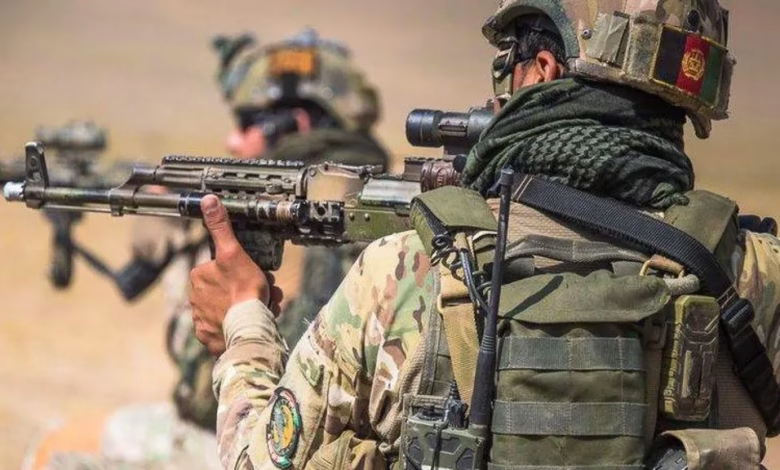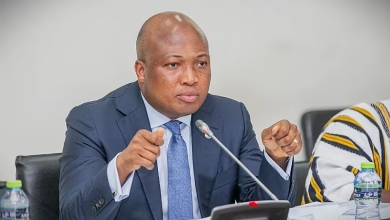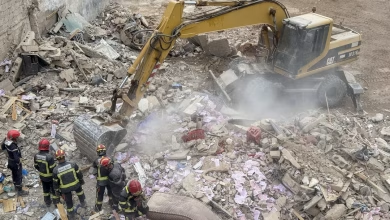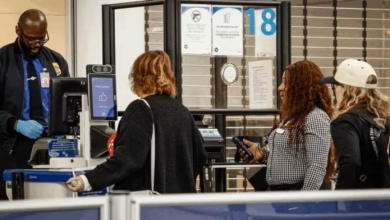2,000 Afghan Commandos’ Resettlement Applications Rejected – MoD confirms

- UK rejects 2,000 Afghan commando asylum bids
- Commandos fought alongside UK forces in Afghanistan
- Rejections spark controversy amid UK war crimes probe
The UK Ministry of Defence (MoD) has confirmed for the first time that UK Special Forces (UKSF) rejected over 2,000 resettlement applications from Afghan commandos who had credible evidence of serving in units that fought alongside the UK’s Special Air Service (SAS) and Special Boat Service (SBS) in Afghanistan.
These Afghan units, referred to as the Triples, were trained, funded, and supported by UK Special Forces and played a vital role in operations alongside British forces. However, despite their contribution, all applications from former members of the Triples for resettlement to the UK have been rejected, raising significant concerns about their safety and treatment. The MoD had previously denied the existence of a blanket rejection policy, but the BBC’s investigation revealed that no resettlement applications had been supported by UKSF.
When questioned about the matter, the MoD declined to confirm whether any applications had been supported by UKSF, offering no direct response to the inquiry.
The Triples, named after their designations CF 333 and ATF 444, were set up by UK Special Forces and were involved in high-risk missions against the Taliban. Following the fall of Afghanistan to the Taliban in 2021, former members of these units were deemed at significant risk of retaliation and thus eligible to apply for resettlement to the UK.
The rejection of their applications comes amid an ongoing public inquiry investigating allegations of war crimes by British Special Forces in Afghanistan. The inquiry, which could compel witnesses from within the UK, has sparked concerns that resettling former Afghan commandos could expose significant evidence about the UK’s operations in the country.
In a 2022 BBC Panorama report, it was revealed that UK Special Forces had been given veto power over the resettlement applications of former Afghan commandos, and they denied these applications despite their credible evidence of service. This led to widespread anger among former SAS members and others who served alongside the Afghan units. Initially, the MoD denied the existence of such a veto, but then-Defence Minister Andrew Murrison later admitted in Parliament that the government had misled MPs about the issue.
The confirmation of more than 2,000 rejected applications came to light in recent court hearings as part of a legal challenge brought by a former member of the Triples. The MoD had sought to block reporting on the case, but withdrew their application under legal pressure. Court documents revealed that the MoD had known for some time that the rejections made by UKSF might be unsound and subject to independent review.
Mike Martin MP, a member of the Defence Select Committee and a former British Army officer who served in Afghanistan, expressed his concern over the rejections. “There is the appearance that UK Special Forces blocked the Afghan special forces applications because they were witnesses to the alleged UK war crimes currently being investigated in the Afghan inquiry,” Martin said. “If the MoD is unable to offer any explanation, then the matter should be included in the inquiry.”
Johnny Mercer, a former Conservative MP who served with the SBS in Afghanistan, testified to the Afghan inquiry that he had spoken to former members of the Triples and heard “horrific” allegations of murder by UK Special Forces. Mercer emphasized that the Afghan special forces community holds crucial evidence that should be part of the inquiry.
In 2022, the MoD began reviewing the more than 2,000 rejected applications. Despite the review’s anticipated 12-week timeline, it remains incomplete over a year later. Some rejections have been overturned, allowing former Triples members to relocate to the UK, but many still await decisions. The MoD has refused to inform applicants whether their cases are being reviewed or whether their rejections stand unless they contact the department directly. Many former commandos are in hiding in Afghanistan, making it difficult for them to seek legal counsel or contact the MoD. The delay has had dire consequences, with reports indicating that many have been captured, tortured, or killed by the Taliban.
A former officer in the Triples expressed frustration with the delays, saying, “The delays have caused a lot of problems. People have been captured by the Taliban or lost their lives.” The officer also voiced feelings of betrayal, stating that the Afghan commandos worked “like brothers” with British Special Forces and deserved better treatment.
The MoD is currently facing legal challenges to aspects of the review process. Lawyers for the applicants argue that the MoD has failed to adequately inform them about the status of their cases and has not disclosed the criteria used to determine which cases are being reviewed. The legal challenge is being led by a former senior member of the Triples now residing in the UK, who is representing Afghan commandos still in Afghanistan.
Dan Carey, a partner at Deighton Pierce Glynn, the law firm representing the former commando, said, “Our client’s focus is on his soldiers left behind in Afghanistan, some of whom have been killed while they wait for these heavily delayed protection decisions.”
The MoD has also been criticized for its lack of transparency in disclosing internal records about the decision-making process behind the rejections. Court filings criticized the MoD for failing to comply with its duty of candour in explaining its approach.
Further revelations during the court proceedings suggested that some applicants who had served with UK Special Forces in Afghanistan after 2014 — when British forces officially ended their combat operations — were rejected outright without referral to UK Special Forces headquarters for sponsorship.
Despite the MoD’s claims that UK Special Forces’ role in Afghanistan evolved from combat to advisory duties after 2014, former UKSF officers refuted this, asserting that the Triples continued to support British-led operations after the UK’s formal withdrawal.
The Ministry of Defence has previously stated, “There has been no evidence to suggest that any part of the MoD has sought to prevent former members of the Afghan specialist units from giving evidence to the inquiry.”
As the legal proceedings continue, the fate of the 2,000 Afghan commandos hangs in the balance, with many still in danger while waiting for resolution.






